
Georgia Motorcycle Laws and Your Personal Injury Claim
Motorcyclists in Georgia face unique risks on the road, making it essential for riders to understand the laws that govern
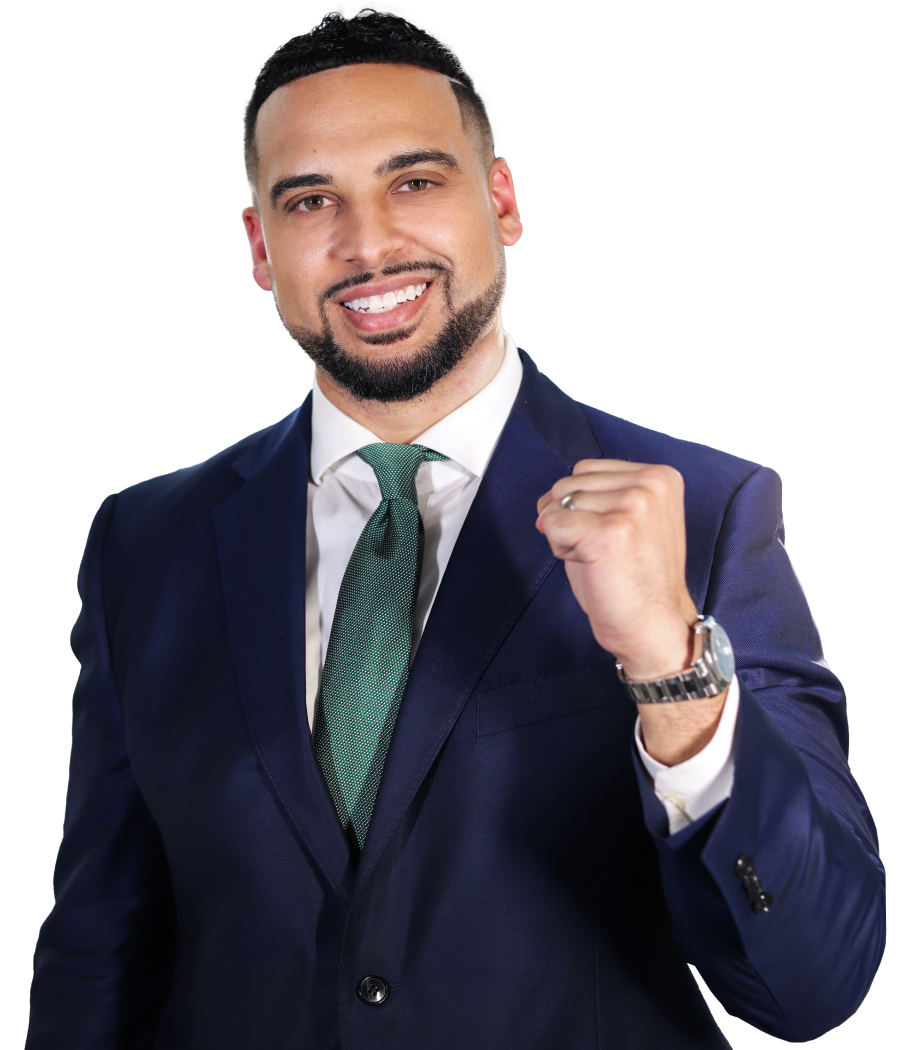
Truck accidents in Atlanta are often catastrophic due to the size and weight of commercial vehicles. Whether the collision occurred on I-285 or in a busy commercial area like Buckhead, the aftermath can leave victims dealing with severe injuries and significant financial losses. Walter Gabriel Accident & Injury Lawyers is here to help truck accident victims recover the compensation they need to rebuild their lives.
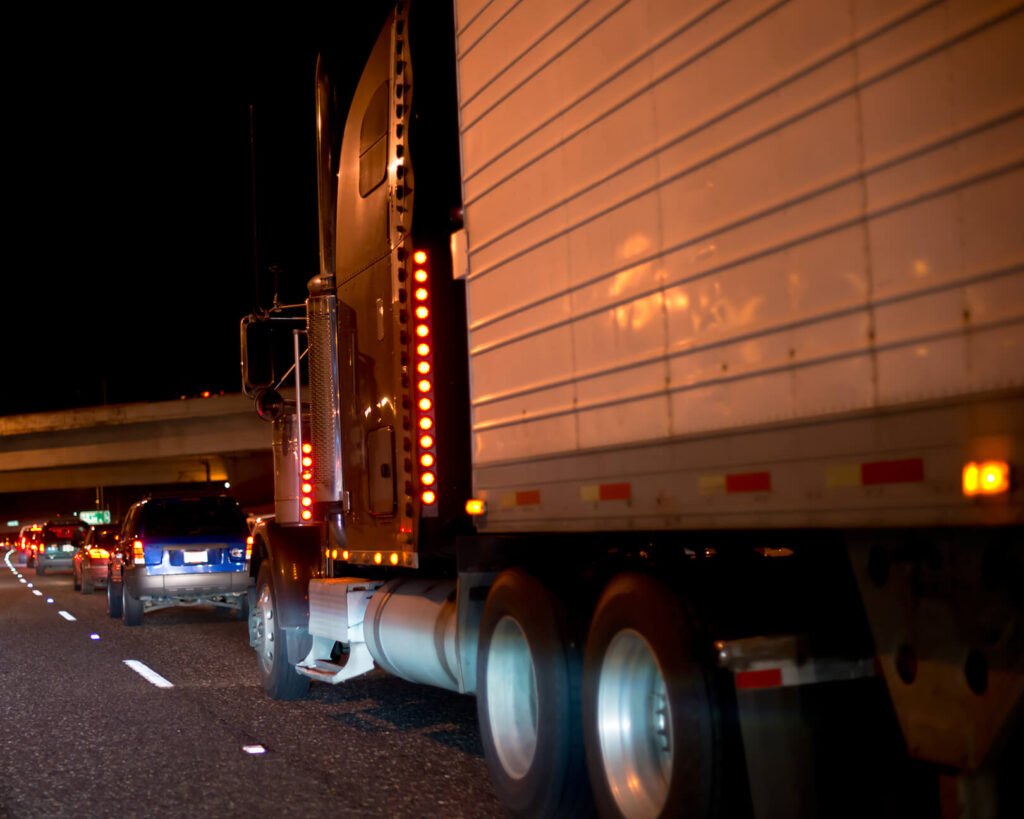
Walter Gabriel Accident & Injury Lawyers has extensive experience handling truck accident cases in Atlanta. We understand the complexities involved, such as navigating federal trucking regulations, identifying liable parties, and combating aggressive insurance tactics. Our team provides personalized attention and aggressive advocacy to ensure you receive justice.
Common Causes of Truck accidents in Atlanta:
– Driver fatigue due to long hours on the road
– Distracted driving, such as texting or using a smartphone
– Speeding or reckless driving
– Poor vehicle maintenance, including brake or tire failures
– Overloaded or improperly secured cargo
– Dangerous road conditions or inclement weather
These challenges require an experienced attorney who understands the intricacies of truck accident claims.
The value of a truck accident settlement depends on several factors, including the severity of injuries, the cost of medical care, and the degree of negligence involved. Settlements in Atlanta often range from significant amounts for serious injuries to millions of dollars for catastrophic cases. Our team is committed to maximizing your compensation by holding all liable parties accountable.
Hiring Walter Gabriel Accident & Injury Lawyers is a straightforward process:
1. Schedule a free consultation to discuss your case.
2. We investigate the accident, gather evidence like black box data and driver logs, and identify liable parties.
3. Our team negotiates with insurers to secure a fair settlement.
4. If necessary, we represent you in court to fight for your rights.
We handle all aspects of your case, so you can focus on your recovery.
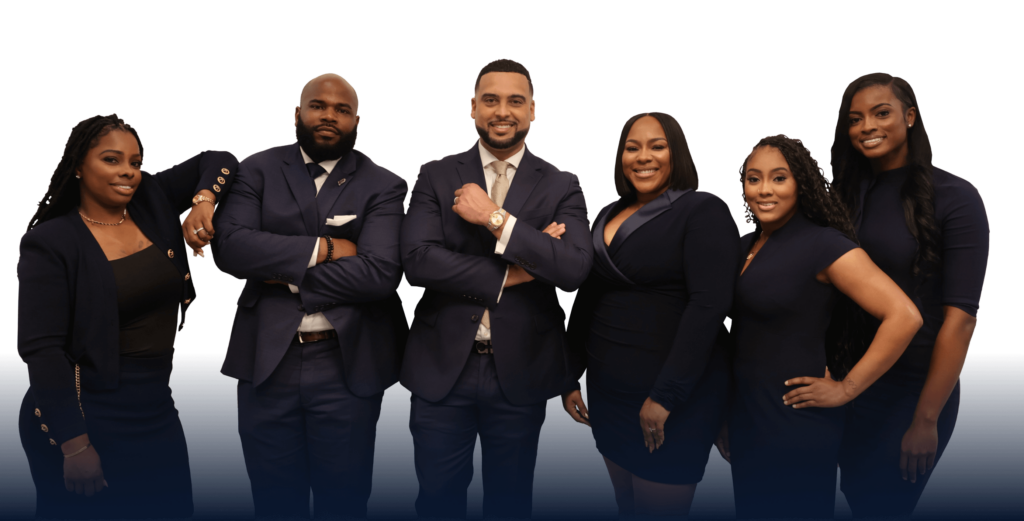
Atlanta Truck Accident Attorney Walter Gabriel operates on a contingency fee basis, meaning you pay nothing upfront. You only owe legal fees if we successfully recover compensation for you. This ensures that financial concerns don’t prevent you from seeking justice.
Truck accidents in Atlanta can result in a wide range of injuries, including:
– Traumatic brain injuries (TBIs)
– Spinal cord injuries and paralysis
– Broken bones and fractures
– Internal injuries, such as organ damage
– Severe burns, cuts, and lacerations
– Emotional trauma, including PTSD
Seeking immediate medical attention is critical for your health and strengthens your legal case.
If you suffered injuries due to a truck accident in Atlanta, follow these steps:
1. Seek medical attention immediately, even if injuries seem minor.
2. Document the accident scene with photos and collect contact information from witnesses.
3. File a police report and request a copy for your records.
4. Avoid discussing the case with insurance adjusters without consulting an attorney.
5. Contact One of our Atlanta truck accident lawyers at Walter Gabriel Accident & Injury Lawyers for a free consultation and expert legal guidance.
In Georgia, the statute of limitations for filing a personal injury claim is two years from the date of the accident. Acting quickly ensures that evidence is preserved and deadlines are met. Contact our Atlanta truck accident lawyer Walter Gabriel as soon as possible to protect your rights.
Insurance companies often offer low settlements to resolve claims quickly. It’s important not to accept any offer without consulting an attorney. Our Georgia truck accident lawyer will review your case, negotiate with insurers, and fight for the full compensation you’re entitled to.
Atlanta big truck accident lawyer, Walter Gabriel understands tractor-trailers transport goods across the country and fuel the American economy. However, these large vehicles cause many accidents and deaths. The average passenger vehicle weighs around 2.5 tons. Compare that to a big truck which can weigh up to 30 tons — and take longer to come to a complete stop. This puts other drivers at risk. Walter Gabriel Accident & Injury Lawyers represents people injured or killed in big truck accidents in Atlanta. Attorney Walter Gabriel represents victims of big truck accidents in other parts of Georgia and Louisiana.
There are around 500,000 trucking accidents every year in the United States. Unfortunately, one in 8 traffic-related deaths involves a truck collision. Around 5 percent of large trucks involved in fatal crashes had brake or tire problems.
If you were involved in a truck-related accident, or know somebody who has, you could be entitled to compensation. This money can pay for medical bills or other expenses related to the accident, such as lost wages.
Although a truck collision can be an extremely stressful experience, you must act quickly. Working with an experienced Atlanta big truck accident lawyer like Walter Gabriel will help you get the compensation you deserve. With office locations in Atlanta, GA, and Alexandria, LA, you won’t pay a single dime unless you win your case. It’s as simple as that.
The National Highway Traffic Safety Administration (NHTSA) defines a large truck as:
“…any medium or heavy truck, excluding buses and motor homes, with a gross vehicle weight rating (GVWR) greater than 10,000lbs. These large trucks can include commercial and non-commercial vehicles.”
In 2017, 79 percent of the large trucks involved in fatal traffic crashes were heavy large trucks (GVWR > 26,000 lbs), according to the NHTSA. Fatalities in crashes involving large trucks increased by 9 percent to 4,761 in 2017, up from 4,369 in 2016. Over a 10-year period, there was a 12 percent increase in the total number of people killed in large truck crashes. Those numbers spiked from 4,245 fatalities in 2008 to 4,761 fatalities in 2017.
As you can see, the problem of large truck accidents is getting worse. There are more large trucks on the road than ever before and these vehicles are getting larger.
The firm witnessed the number of personal injury claims for people involved in truck-related accidents skyrocket in recent years. However, Atlanta truck accident lawyer Walter Gabriel represents victims of these accidents to get compensation to cover all the expenses associated with their accidents.
Have you suffered injuries from a big truck accident? With more than 15 years of experience, Attorney Gabriel can fight your case and help you recover financially from your accident.
GET IN CONTACT
don’t wait to get the help you need.
There are various factors that result in big truck accidents. These include:
In the trucking industry, it’s quite common for employers to impose challenging schedules (and incentives) on their drivers. Drivers are often fatigued and sleep-deprived, and they sometimes use stimulants to help tackle their schedule. This can expose others to an unreasonable risk of harm.
Driver fatigue contributes to around 13 percent of all large trucking accidents in the U.S. every year. Instead of pulling over, some truckers continue driving because they have shipments to deliver and deadlines to meet.
These are only some of the issues that can cause a trucking accident. If you or someone you love is involved in a big truck accident, you need a skilled Atlanta big truck accident lawyer on your side who can fight your corner and handle all the paperwork associated with your claim.
There is a wide range of injuries that can arise from big trucking accidents, from mild to severe.
Big truck accidents often involve commercial vehicles in which the driver is an employee acting within the course and scope of their employment. Depending on the circumstances, you may be entitled to sue and recover damages from the employer pursuant to various theories of liability.
When something called “vicarious liability” is established, this means the accident victim is potentially entitled to receive substantially more money in compensation as the company owning the truck often has several millions of dollars worth of liability insurance coverage.
The Federal Motor Carrier Safety Administration (FMCSA) governs the standards for operating commercial motor vehicles that travel across state lines. Commercial vehicles are defined as any vehicle that fits any one of the following criteria:
For property-carrying drivers of commercial vehicles, the following regulations apply:
May drive a maximum of 11 hours after 10 consecutive hours off duty.
May not drive beyond the 14th consecutive hour after coming on duty, following 10 consecutive hours off duty. Off-duty time does not extend the 14-hour period.
May drive only if 8 hours or less have passed since the end of the driver’s last off-duty or sleeper-berth period of at least 30 minutes. This does not apply to drivers using either of the short-haul exceptions in 395.1(e). [49 CFR 397.5], where mandatory “in attendance” time may be included in the break if no other duties are performed.
May not drive after 60/70 hours on duty in 7/8 consecutive days. A driver may restart a 7/8 consecutive day period after taking 34 or more consecutive hours off duty.
The following regulations apply for passenger-carrying drivers:
May drive a maximum of 10 hours after 8 consecutive hours off duty.
May not drive after having been on duty for 15 hours, following 8 consecutive hours off duty. Off-duty time is not included in the 15-hour period.
May not drive after 60/70 hours on duty in 7/8 consecutive days.
Drivers using a sleeper berth must take at least 8 hours in the sleeper berth, and may split the sleeper berth time into two periods provided neither is less than 2 hours.
To ensure compliance, truckers have to sign their logbook, making them liable if they break any of the above rules. The FMCSA holds the signing truck driver responsible for the truthfulness of the contents logged within their logbook. Having an Atlanta big truck accident lawyer who is skilled in navigating these issues can be key to your case.
These rules are complicated. This is why it’s a good idea to use the professional experience to fight for the compensation you deserve. If you sustained in a truck-related accident, we can help. Click here to contact us and speak to a member of the team. Remember, you pay nothing unless you win.
According to Georgia state law, “every person shall be liable for torts committed by… his servant by his command or in the prosecution and within the scope of his business, whether the same are committed by negligence or voluntarily.” (O.C.G.A. § 51-2-2.) This Georgia statute imputes liability upon employers in a broad set of circumstances, which includes liability imposed on trucking companies when an employee causes a trucking accident.
In Georgia, as in any other state, a person who sustains an injury from being hit by a driver of a commercial vehicle is much more likely to sustain severe injury. Also, employers are strictly liable for damages caused by their employees during the course and scope of their employment (for example, while performing the functions of their employment, such as driving a truck).
If you are injured due to the negligence of a truck driver, then you have a right of action against your employer for damages, so long as the truck driver was acting in the course and scope of employment.
Unfortunately, not many people are aware of this. People who have been involved in a truck-related accident that wasn’t their fault often end up with expensive medical bills or might not be able to work. This can cause financial distress. However, many of these people are entitled to compensation to cover the costs.
States, including Georgia, also recognize an independent negligence claim brought against the employer for failing to adequately hire, train, or supervise an employee (thus contributing to the plaintiff’s injuries).
How does this work?
An “employer is bound to exercise ordinary care in the selection of employees and not to retain them after knowledge of incompetency.” (O.C.G.A. § 34-7-20.)
This Georgia statute mentions both the “selection” and “retaining” of employees. Therefore, as a negligent act of the driver is one action that can be held accountable. The action of the employer to negligently hire, and separately, to retain the unfit employee, is a separate action to which the trucking employer can be held accountable. Courts in Georgia have backed up this premise several times.
For negligent hiring, the standard of care in such cases is whether the defendant, in the exercise of reasonable care, should have known of the driver’s incompetency. Cherry v. Kelly Svcs., 171 Ga. App. 235 (319 S.E.2d 463) (1984).
If the jury finds the employer should have known the driver was an unsafe driver, then the jury could also find that the employer permitting him to drive the company-owned truck was a proximate cause of the collision. Thus, the plaintiff may be entitled to punitive damages. (See Smith v. Tommy Roberts Trucking Co., 209 Ga. App. 826.)
Suppose that you are seriously injured by an intoxicated truck driver. After securing the assistance of an Atlanta big truck accident lawyer, you discover that the truck driver worked for a shipping company. If the shipping company knew that the truck driver was a struggling alcoholic, then they could arguably be held liable for negligently hiring and supervising the driver because the company should have refused to hire the driver after learning of the issue, or the employer should have prevented them from driving until the issue was resolved.
Again, you need a reputable personal injury attorney to take care of your case for you. Here at Walter Gabriel Accident & Injury Lawyers you will get an Atlanta big truck accident lawyer who handles all the tasks associated with your personal injury case so you can concentrate on your recovery. Let us do all the hard work for you and fight for the compensation you need. Click here to contact us.
“An employer has a duty of ordinary care not to … retain an employee the employer knew or should have known posed a risk of harm to others where it is reasonably foreseeable from the employee’s “tendencies” or propensities that the employee could cause the type of harm sustained by the plaintiff. “
(Little-Thomas v. Select Specialty Hospital-Augusta, Inc., 333 Ga. App. 362.)
As you can see, the company that hired the truck driver that caused an accident should not have retained this employee if they knew there was a risk to other drivers. In this scenario, you could seek legal action against the company and win damages.
In order to be able to present a claim for negligent training and supervision before a jury, a plaintiff must produce some evidence of incidents similar to the behavior that was the cause of the injury at issue. (Doe v. YWCA of Greater Atlanta, Inc., 321 Ga. App. 403.)
For example, in the context of a trucking collision, previous at-fault collisions or safety violations committed by the at-fault driver may give rise to a claim for negligent training and/or negligent retention against the company that hired the driver. This may give rise to punitive damages against the company, which often has much deeper pockets and much larger insurance liability limits.
In this scenario, you could win thousands of dollars in compensation. It is difficult to seek legal damages against a company by yourself, however. This is why it’s imperative you enlist the services of an Atlanta big truck accident lawyer with more than 10 years of experience.
Although it is certainly a valid cause of action, proving negligent supervision is often difficult, as the burden imposed on a plaintiff can often be challenging to meet. In many cases, courts will not uphold a negligent supervision claim if there is no proof that the supervisor was aware of the employee’s ongoing misconduct. (Poole v. North Ga. Conf. of the Methodist Church, Inc., 273 Ga. App. 536.)
Phrased differently; to be able to present a case of negligent supervision to a jury, a plaintiff must produce some evidence of incidents similar to the behavior that was the cause of the injury at issue. (Shamblin v. Corp. of the Presiding Bishop of the Church of Jesus Christ of Latter-Day Saints, 352 352 Ga. App. 870.)
“For an employer to be held liable for negligent supervision, there must be sufficient evidence to establish that the employer reasonably knew or should have known of an employee’s tendencies to engage in certain behavior relevant to the injuries allegedly incurred by the plaintiff.”
(Doe v. Young Women’s Christian Assn. of Greater Atlanta, 321 Ga. App. 403, 408 (2) (740 SE2d 453) (2013))

Families are already going through a horrific tragedy of losing a loved one. There’s much to discuss with regard to who is the right person within the family to file the lawsuit.
For Georgia claims, O.C.G.A. § 51-4-2 provides the answer to most questions on this matter.
The surviving spouse or, if there is no surviving spouse, a child or children, may recover for the homicide of the spouse or parent the full value of the life of the decedent, as shown by the evidence.
If an action for wrongful death is brought by a surviving spouse and the surviving spouse dies pending the action, the action shall survive to the child or children of the decedent.
If an action for wrongful death is brought by a child or children and one of the children dies pending the action, the action shall survive to the surviving child or children.
When no spouse or child is available to bring a claim on behalf of the decedent, O.C.G.A. § 51-4-5 applies:
“The administrator or executor of the decedent may bring an action for and may recover and hold the amount recovered for the benefit of the next of kin. In any such case, the amount of recovery shall be the full value of the life of the decedent.”
In Louisiana, only certain eligible parties are entitled to file a wrongful death lawsuit to obtain compensation for such losses. Those eligible parties include:
It is irrelevant in Louisiana whether the relation is by blood or adoption.
Are you unsure if you can seek legal damages against a driver or trucking company after an accident? Contact Walter Gabriel Accident & Injury Lawyers to find out. You may be able to seek legal damages against a driver or trucking company after an accident. Click here to talk to a member of a skilled team and get set-up with an Atlanta big truck accident lawyer.
If you have a family member who was killed due to the negligence of the driver of a tractor-trailer, the firm offers a reduced contingency arrangement. For any individual who retains Walter Gabriel Accident & Injury Lawyers under this circumstance, he offers a contingency fee of 20% of the gross amount recovered for any wrongful death trucking case that settles before a lawsuit is filed. If a lawsuit has to be filed, a contingency fee will be only 30% of the gross amount recovered. We are able to provide a reduced contingency fee because we are confident that he will maximize your recovery for your family’s wrongful death claim related to a claim against a big truck company. He is very aware that the gap in what can be recovered in a trucking wrongful death claim can be substantial.
There are two main arrangements for fees during a claim for compensation after a trucking-related accident. These are: The contingency fee arrangement The standard hourly fee arrangement
A contingency fee is a contractual arrangement that exists to level the playing field between the individual who is injured and what is often the multi-million dollar corporation that is the defendant in the case when truck accidents are involved. Under a contingency agreement, the attorney represents the client with no upfront legal fee. The attorney represents the client under the basic premise that if no money is recovered for the client, no legal fee is owed to the attorney. And if money is recovered on behalf of the client, the legal fees come directly from the settlement. So regardless of whether money is recovered on behalf of the injured client, money does not come from the client’s funds to pay for the client’s legal representation while the case is ongoing. This is extremely beneficial for many clients who seek damages after a big truck accident. Many of them don’t have the funds to pay for legal fees upfront, and they don’t want to risk losing a claim for compensation. Under the contingency fee arrangement, people involved in an accident can fight for compensation without financial worry. This means you pay nothing upfront.
Under a standard hourly fee agreement, the client is charged more as the attorney works more on the client’s case. Under this arrangement, compensation has no connection to the result obtained for the client. The attorney is paid more by doing more work on your case. This means that the client would potentially owe the attorney several thousands of dollars for work done on the case before the case settles or ends with a jury verdict. This arrangement would cause most personal injury cases not to proceed with a plaintiff’s attorney, as the out-of-pocket cost into the thousands would be too costly for most people.
For trucking accidents, many attorney contingency arrangements provide that the attorney’s fee is 33% of the gross amount recovered pre-suit, and 40% of what is recovered after a lawsuit is filed, and for some firms, the attorney’s fee portion is even higher. The concept of a contingency agreement works for the client for a number of reasons: First, if nothing is recovered on behalf of the client, nothing is owed to the law firm representing the client. Second, the financial interests of the law firm and client are directly aligned, as when more money is recovered on behalf of the client, that means the law firm representing the client earns more money as well. He offers a contingency fee arrangement for people who suffered injuries in a trucking-related accident.
Truck accidents — particularly those involving “big trucks,” or “18 wheelers” such as a trailer truck or large passenger bus — expose others on the road to life-threatening dangers when not operated properly. Though the negligent operation of a vehicle is always dangerous, the negligent operation of a truck may lead to an accident that has a higher chance of causing catastrophic injuries, or even death.
Big trucks are not only less maneuverable than smaller vehicles, but the force of impact tends to be significantly greater due to the massive size and weight of these vehicles. As such, the injuries suffered by the victims of a truck accident are more likely to cause people who survive from collisions with these trucks to sustain hundreds of thousands of dollars in medical bills, with no end in sight. On top of this, survivors might not be able to return to work because of short-term or long-term injuries. With bills to pay and families to support, these people often have nowhere else to turn.
Crash data seems to support the above conclusions that big trucks are extremely dangerous. According to a recent report conducted by the Federal Motor Carrier Safety Administration, there were 4,400 fatal crashes and 119,000 injury crashes involving large trucks in 2016 alone. Tractor-trailer operators are subject to a number of federal regulations that place strict regulations on how they operate their tractor-trailers. Some regulated items include speed, permitted routes, and working hours. Often, drivers break these regulations and put other drivers at risk.
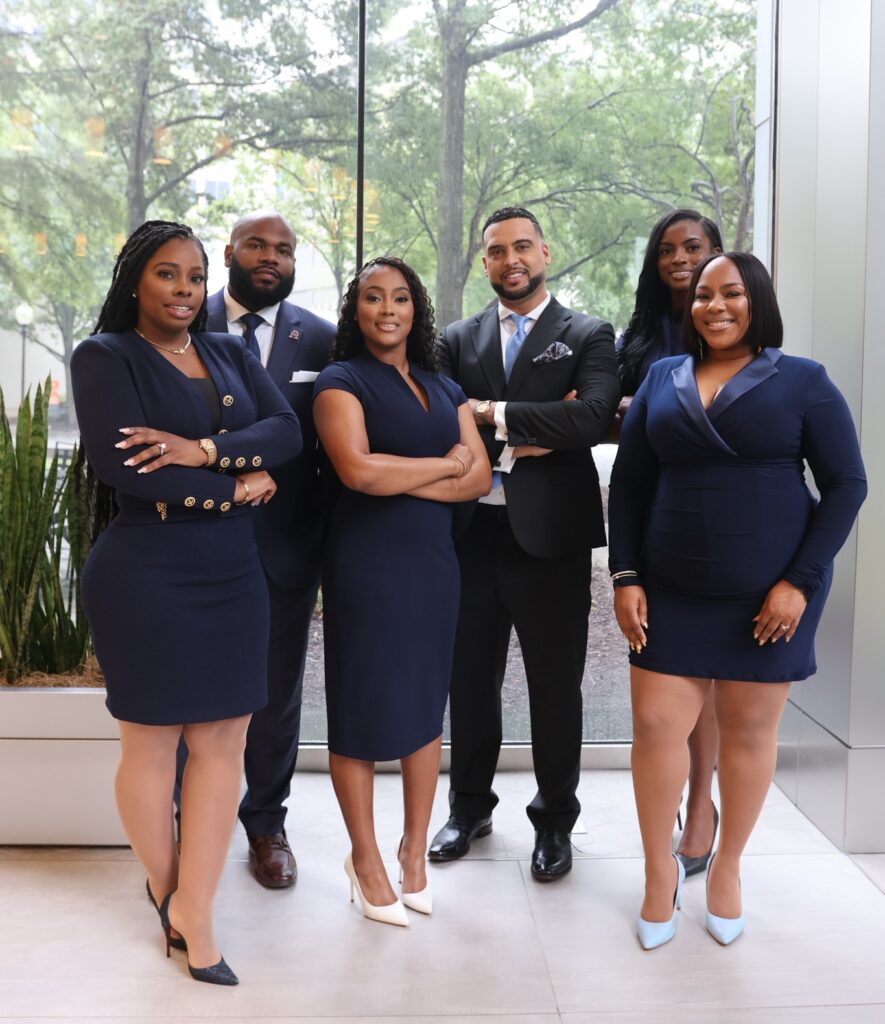
If you suffered injuries in a big truck accident, contact Walter Gabriel Accident & Injury Lawyers to help you secure the compensation that you and your family deserve. Attorney Walter Gabriel built a career representing the interests of those who suffered harmed in various personal injury scenarios, including accidents that involve big trucks. Atlanta truck accident lawyer Walter Gabriel recovered millions of dollars for his clients, including a $1.1 million settlement for the family of a man who was killed by a hit-and-run driver. He worked on multiple sides of a dispute — as a prosecutor and now as a plaintiff-side attorney — and is, therefore, well-positioned to develop creative solutions to a challenging accident case.
Attorney Gabriel worked with clients from across Georgia, Louisiana, and beyond to resolve even the most complex of personal injury claims. With his years of experience and excellent reputation, you can improve your chances of getting the right amount of compensation after an accident. He continues to provide his clients with the legal support they need to navigate complex legislation that pertains to big truck accidents, 18-wheeler accidents, and more.
Walter Gabriel Accident & Injury Lawyers is a personal injury firm with extensive experience handling Atlanta big truck accidents, including those that involve “big trucks” category vehicles — 18-wheelers, vans, buses, and other large vehicles. Successfully litigating such disputes requires a deep understanding of the hierarchies of responsibility that contributed to or otherwise influenced the accident. He is a fundamentally client-oriented firm.
Walter closely collaborates with his clients and takes the time to learn about their goals and concerns. This informational advantage enables us to act swiftly and decisively when opportunities arise in litigation. Attorney Walter Gabriel is licensed to practice law in both Georgia and Louisiana. However, trucking cases are often tried in federal courts, and the question of which state should have jurisdiction often arises in cases where commercial motor vehicles as defined by the Federal Motor Carrier Safety Administration are common in trucking cases.
For this reason, do not hesitate to contact Walter Gabriel Accident & Injury Lawyers for a free consultation for your trucking case, even if the collision occurred outside of Georgia and Louisiana. Find out if you have a case. Call or submit a case evaluation form online to request a free and confidential consultation with a skilled Atlanta big truck accident lawyer at Walter Gabriel Accident & Injury Lawyers today.
don’t wait to get the help you need.

Motorcyclists in Georgia face unique risks on the road, making it essential for riders to understand the laws that govern


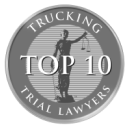

Personal injury refers to physical, emotional, or psychological harm suffered by an individual due to the negligence, recklessness, or intentional actions of another party. Common examples include car accidents, slip and fall incidents, medical malpractice, workplace injuries, and product liability cases. The goal of personal injury law is to provide compensation to the injured party (plaintiff) for their losses, such as medical expenses, lost wages, pain and suffering, and other damages.
A personal injury lawyer, like Attorney Walter Gabriel, specializes in representing individuals who have been injured due to someone else’s actions or negligence. Here’s how Attorney Walter Gabriel helps victims receive maximum compensation for their injuries:
In summary, Attorney Walter Gabriel plays a vital role in helping accident victims recover the maximum compensation they deserve by providing expert legal representation, thorough case preparation, and unwavering advocacy.
Suffering an accident or injury can be a life-altering experience, leaving you physically, emotionally, and financially overwhelmed. In the moments following an incident, it’s crucial to take the right steps to protect your health, your rights, and your ability to recover compensation. At Walter Gabriel Accident & Injury Lawyers, we’re here to help you navigate this challenging time. Here’s what you should do after an accident or injury:
Your health and safety are the top priority. Even if your injuries seem minor, it’s essential to see a doctor as soon as possible. Some injuries, such as whiplash or internal trauma, may not show symptoms right away. A medical professional can document your condition, which is critical for both your recovery and any future legal claims.
Depending on the type of accident, report it to the appropriate authorities or parties. For example:
Gather as much evidence as possible to support your claim. This includes:
Be cautious about what you say after an accident. Avoid admitting fault or making statements that could be used against you later. This includes conversations with insurance adjusters, the other party involved, or even on social media. Let your attorney handle all communications on your behalf.
Navigating the legal process after an injury can be complex, especially when dealing with insurance companies or at-fault parties. An experienced personal injury attorney can help you:
At Walter Gabriel Accident & Injury Lawyers, we specialize in helping injury victims recover the compensation they deserve for medical bills, lost wages, pain and suffering, and more. We’ll fight tirelessly to protect your rights and hold responsible parties accountable.
Injury-related expenses can add up quickly. Maintain a file with all receipts, bills, and documentation related to your accident, including:
This information will be crucial when calculating the full value of your claim.
Insurance companies often try to offer quick, lowball settlements to minimize their payouts. Before accepting any offer, consult with a personal injury lawyer near you to ensure it covers all your current and future expenses. Once you accept a settlement, you typically cannot seek additional compensation later.
Let Us Help You Move Forward
If you or a loved one sustain injuries due to someone else’s negligence, you don’t have to face the aftermath alone. The team at Walter Gabriel Accident & Injury Lawyers is here to provide compassionate, experienced legal representation. We’ll guide you through every step of the process, so you can focus on healing while we fight for the justice and compensation you deserve.
Contact us today for a free, no-obligation consultation. Let us help you take the first step toward recovery and securing your future.
A personal injury lawyer typically works on a contingency fee basis, which means they only get paid if they successfully recover money for you. Here’s how it works:
In summary, a personal injury lawyer’s payment structure is designed to make legal representation accessible to everyone, regardless of their financial situation. You don’t have to pay a dime to start your case, and the lawyer only gets paid if you win. This arrangement aligns the lawyer’s interests with yours, ensuring they are committed to achieving the best possible outcome for your case.
The value of a personal injury case depends on several factors, and without specific details, it’s impossible to provide an exact amount. However, here are the key factors that influence the worth of a personal injury case:
For a more accurate estimate, provide specific details about your case to a qualified personal injury attorney. They can assess the unique factors of your situation and give you a better idea of what your case might be worth.
The time it takes to resolve a personal injury case can vary widely depending on several factors, including the complexity of the case, the severity of the injuries, the willingness of the parties to negotiate, and the court’s schedule. Here are some general timelines:
If you have specific concerns about your case, it’s best to discuss them with your personal injury attorney, who can provide a more accurate timeline based on the details of your situation.
A sudden collision on a Baton Rouge interstate like I-10, I-12, or I-110 can leave you disoriented and overwhelmed. Knowing
An Oil-Tanker Crash in Plaquemines Parish on Highway 23 in the Oakville/Cedar Grove area serves as a stark reminder of
Many people associate severe injuries with high-speed, catastrophic accidents. However, low-impact accidents—those occurring at lower speeds or with minimal visible
Motorcyclists in Georgia face unique risks on the road, making it essential for riders to understand the laws that govern
The Immediate Impact of Losing a Loved One to a Drunk Driver The immediate aftermath of losing a loved one